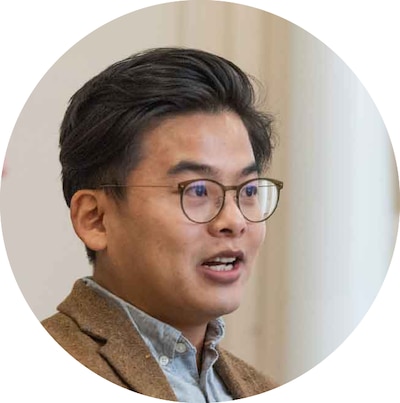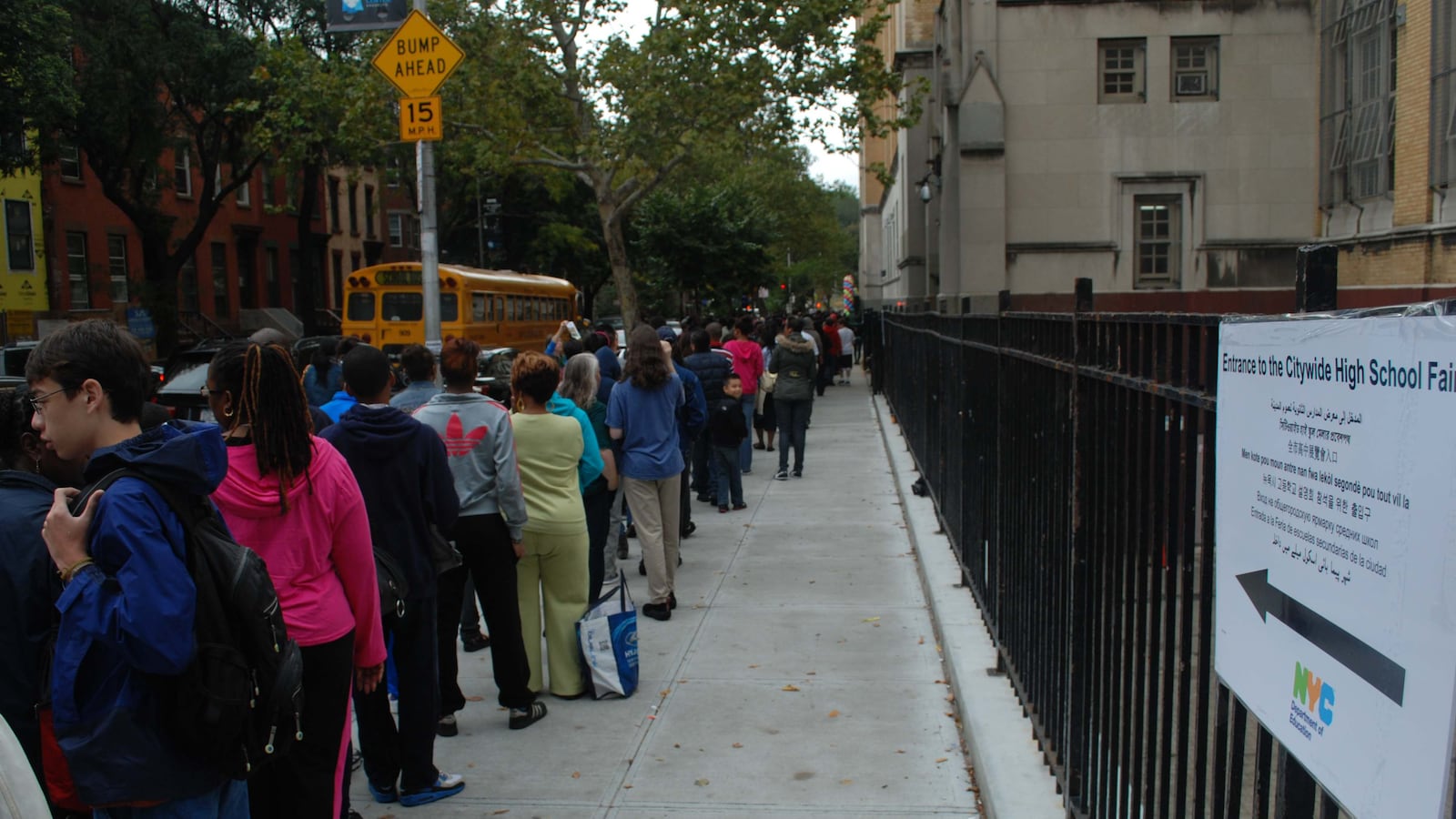I am a lawyer, and every day I use the law to fight for social justice. I am also an Asian American graduate of Brooklyn Technical High School, one of the specialized high schools in New York City.
These identities compel me to speak out on the debate surrounding the admissions process for the city’s specialized high schools, especially in the wake of a lawsuit filed in December, the enrollment offers released for these schools this week, and an unfolding national college admissions scandal.
The lawsuit, brought by the Pacific Legal Foundation ostensibly to contest alleged discrimination against Asian American students, targets changes to the city’s expanding Discovery Program. It allows students attending low-income middle schools to receive an offer to one of the city’s elite high schools if they score just below the admissions cut-off on the Specialized High School Admissions Test.

Fortunately, a district judge ruled Feb. 25 that the preliminary injunction the plaintiffs sought to halt the plan was not warranted. But the Pacific Legal Foundation appears prepared to take its case all the way to the U.S. Supreme Court — whose composition and majority have recently shifted rightward, threatening the civil rights that many have fought so hard to achieve.
To me, this suit is as an affront to who I am as a lawyer, as an Asian American, and as a graduate of New York City’s public school system. It’s also one to which I feel a strange personal connection.
While at UCLA School of Law in 2007, I attended an event with a white male speaker from the Pacific Legal Foundation. He argued that it was both wrong and unconstitutional for schools to consider race when attempting to integrate. Since the use of race in school admissions decisions was subject to “strict scrutiny” by the courts, if schools chose to address such concerns, he said, they would have to use race-neutral means, such as considering social class instead.
That’s one side of an ongoing legal debate. The Bush, Obama, and now Trump administrations have interpreted a key decision differently, and today, most districts don’t consider race in their school assignment policies. But what I remember about that encounter was his response when I pressed him, making the question more personal than legal. Why did he view affirmative action on the basis of class versus race so differently? He politely declined to answer by simply stating it was a good question. To me, a young law student, it seemed that Pacific Legal Foundation was not looking to fix racial and economic inequality, but was trying to avoid doing so.
Today, I see their tactics as even more disingenuous and insidious, attempting to dismantle integration efforts under a guise of race-neutral civil-rights rhetoric. Now, the Pacific Legal Foundation and similar groups have begun to challenge even race-neutral measures to promote diversity. In their SHSAT suit, they are arguing that boosting the admissions of underrepresented students from low-income middle schools is, in and of itself, impermissible “race” discrimination, since those schools are predominantly black and Latinx.
To do so, they are relying on Asian American plaintiffs, whose successes and struggles have been reduced over the years to create the myth of the “model minority” — a characterization that then serves to rationalize the effects of systemic racism and entrenched poverty on black and Latinx people. I am dismayed to see Asian Americans being employed as a racial wedge — by the Pacific Legal Foundation but also by those who orchestrated the lawsuit by Asian Americans against Harvard. In the words of legal scholar Mari Matsuda: “We will not be used.”
I hear and understand the frustration of fellow Asian Americans who sometimes feel our struggles are invisible, that our hard work is discounted, that we are scapegoated, and who fear quotas that could theoretically deny Asian Americans access to educational and professional opportunities. But I believe our struggles are being distorted and weaponized by the Pacific Legal Foundation and similar groups for ulterior purposes. From this suit, the message and rhetoric is dangerous and divisive, and it perpetuates racist stereotypes against black and Latinx communities as undeserving and less-than their white and Asian counterparts.
I wish my 17-year-old self at Brooklyn Tech had known enough to make these points to classmates, some of whom I heard express negative and misguided assumptions that their “spot” at an elite college had been “taken” by a less deserving black or Latinx student. But back then, I and others assumed testing and admissions systems were fair and objective — an illusion that persists in regard to admission to the specialized high schools today. Yet we now know such assumptions are unwarranted, ignoring as they do the historical context of racism and racial privilege, which plays out in different ways among different racial groups.
For example, when I was applying to Brooklyn Tech, I didn’t take a prep course for the exam. But, my older sister, who also attended Brooklyn Tech, did. I used her materials to prepare for the test and believe I would not have gotten in a specialized high school without access to that resource. The same is true for the test prep that I’ve used for the SAT and LSAT. Through test prep, I saw my scores improve dramatically. But here is the truth: I was no different or smarter or deserving than I was before I accessed such materials.
The latest admissions numbers, released this week, make it even more plain: What has worked for some students and families is not working for others. This is not a value judgment about who is better or more deserving. Rather, it is an awakening that the status quo does not work.
Many of the Asian Americans and groups rallying to preserve the status quo have argued we should leave the specialized high schools alone and instead focus on fixing the rest of the city’s schools. This sounds good, but I have yet to see the energy and resources being mobilized on behalf of this lawsuit being devoted to improving our schools.
I’d like to see the city start by building more schools, beefing up curriculum by teaching ethnic studies, and decreasing class sizes, among other common-sense solutions. Some Asian American advocates have proposed building a new specialized high school in Queens, where many of the Asian American specialized high school students reside, to reduce commutes of three and four hours for students trying to get to and from school.
And at a minimum, we should support the city’s plan to expand the Discovery Program, instead of working to preserve the status quo and fighting against diversity and integration efforts in the courts — efforts that are both short-sighted and racially divisive. We can do better.
Jason Wu is a 2003 graduate of Brooklyn Technical High School and currently a staff attorney at The Legal Aid Society.
About our First Person series:
First Person is where Chalkbeat features personal essays by educators, students, parents, and others trying to improve public education. Read our submission guidelines here.

